Could BNP have avoided violence on Oct 28?
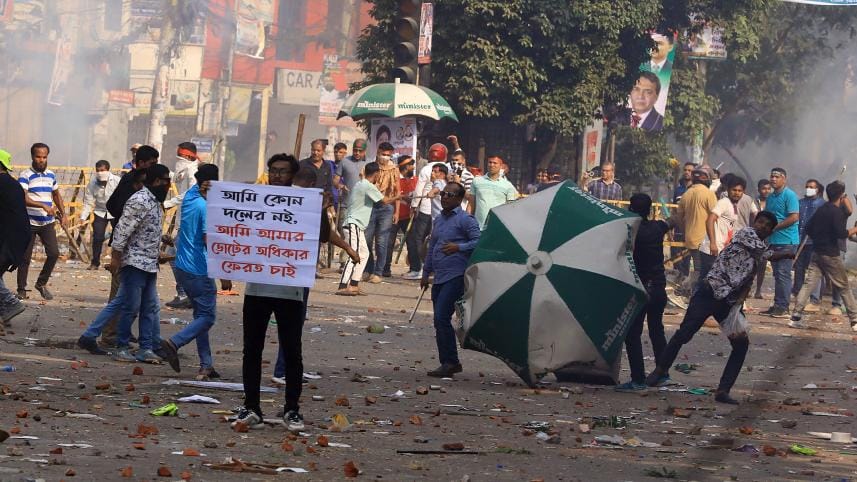
The events of October 28 seem to have many hidden layers underneath what we saw and heard. A colossal difference in the strategies and foresight of the two major political parties of Bangladesh was witnessed on the day.
The BNP has been pressing home its demands for the reinstatement of a neutral caretaker government system and the ousting of the ruling party from power. Despite many provocations, BNP did not walk the violent path and managed to attract large numbers to their rallies in recent times. With time, the support behind BNP kept getting stronger, as did overseas pressure for a fair election. In spite of creating many barriers, the government could not stop people from joining the BNP rallies. Even on October 28, it could not stop the crowd from flowing in.
Things were beginning to get difficult. Even though AL members kept denying that they were getting cornered, their behaviour gave it away, which, in turn, considerably lowered the morale of workers. The government kept up their refrain of BNP being a party that inflicts terror on people and destroys their possessions.
Eventually, their rhetoric seems to have won: BNP could not keep their movement non-violent, as was demonstrated on October 28.
A movement, such as the one BNP has initiated, requires farsightedness and extreme caution. Every step must be analysed considering all possible outcomes, and responses to them must be planned ahead. BNP leaders and activists, however, were not clear about the objective of the October 28 rally. Even the central leadership was not clear about it.
BNP kept emphasising that they did not plan to "sit in" and would carry out their movement peacefully, avoiding violence. But it seemed the grassroots workers and leaders who came from the rest of the country to Dhaka for the rally did not get clear instructions in this regard. AL leaders provoked them by saying things like "BNP wants violence," and yet there were no words of caution from the BNP.
While entering Dhaka, BNP leaders and workers were searched, frisked and harassed, and many of them were arrested. But AL workers and leaders coming from outside Dhaka faced no such impediment. AL workers were asked to participate with sticks in their rally—an instruction that some workers-leaders of AL and its wings followed.
On the fateful day, violence broke out in Kakrail. Initially, we heard that BNP activists had attacked a bus carrying AL members. A video that went viral the next day shows some stick-wielding youths wrecking a private car. Some of these youths can also be seen standing close to police personnel. According to the news, BNP workers carried out the attack on the AL bus. But who were these young men? Why didn't the police apprehend them? The media has not raised this question. BNP may or may not raise it. It's unlikely that asking the question will absolve the BNP from the allegation of striking first.
In recent times, BNP's strength has been its continued, peaceful movements. But it lost that position just two months before the election. October 28 was a day when AL adopted a farsighted strategy to create a trap for BNP. Showing immaturity and a lack of foresight, BNP fell into that trap.
According to media reports, BNP leaders and activists also took part in the attack on the chief justice's residence. Police officers were attacked and a constable was brutally killed. Can BNP deny the blame for these incidents?
At least 17 journalists were injured; they also claimed that their attackers were BNP activists. BNP leaders and workers may have a grudge against journalists, but no matter how rational the grudge may be, can they ever justify assaulting journalists?
So what did the main opposition party ultimately achieve from all this? Did it forget Jamaat's police beating incident in the past?
While the war crimes tribunal was taking place, members of Jamaat-Shibir attacked the police. Such acts earned them nothing, but cost them a lot. BNP should have remembered that any violence that comes with a movement gets associated with the party that called for it in the first place.
Now, BNP Secretary General Mirza Fakhrul Islam Alamgir has been arrested, along with many other leaders and workers of the party. Other leaders are in hiding, fearing arrests. In such a situation, the workers are in the dark. We did not see much happening during the hartal on October 29. A few BNP workers were seen supporting the strike. But buses and trucks were torched, which led to headlines like "Hartal supporters have torched a bus." How is it that BNP, without being in the field actively, managed to torch buses? Incidents like this are likely to happen and inevitably BNP would be blamed. Did the BNP leadership not consider such possibilities?
As a follow-up movement, the party has announced a three-day blockade from October 31—yet another short-sighted decision. A number of violent incidents took place around the country on the first day of the blockade. BNP will again be blamed for these. Jamaat has also called for a blockade. But Jamaat is much more adept at avoiding blame. They did not take any responsibility for the events of October 28. BNP was allowed to hold a rally before Jamaat; the latter was not even given permission. Jamaat held a rally, while BNP failed to do so. Does the BNP have any explanation about this political equation?
Then there is the scandal over Mian Arefy, the so-called adviser to the US president. Is he a BNP leader? How could BNP "invent" a person like that, hold a news conference and as a whole, participate in a laughable, yet criminal act?
In recent times, BNP's strength has been its continued, peaceful movements. But it lost that position just two months before the election. October 28 was a day when AL adopted a farsighted strategy to create a trap for BNP. Showing immaturity and a lack of foresight, BNP fell into that trap.
The BNP rally became a fiasco, thanks to the police's tear gas shells and sound grenades and the AL members' provocative words and sticks. So, the question is: what could BNP have done differently? Was it actually possible for them to avoid the violence? Do we expect the BNP to remain calm, no matter how severe the situation becomes? Maybe that is the expectation to a certain extent. The way police as well as AL leaders and activists chased after the BNP members, it was a given that the BNP rally would not be allowed a peaceful end.
However, had the BNP leadership stayed more alert, maybe the violence could have been averted to some extent, if not entirely.
Golam Mortoza is the editor of The Daily Star Bangla.
Translated from Bangla by Mohammed Ishtiaque Khan.
Follow The Daily Star Opinion on Facebook for the latest opinions, commentaries and analyses by experts and professionals. To contribute your article or letter to The Daily Star Opinion, see our guidelines for submission.




 For all latest news, follow The Daily Star's Google News channel.
For all latest news, follow The Daily Star's Google News channel. 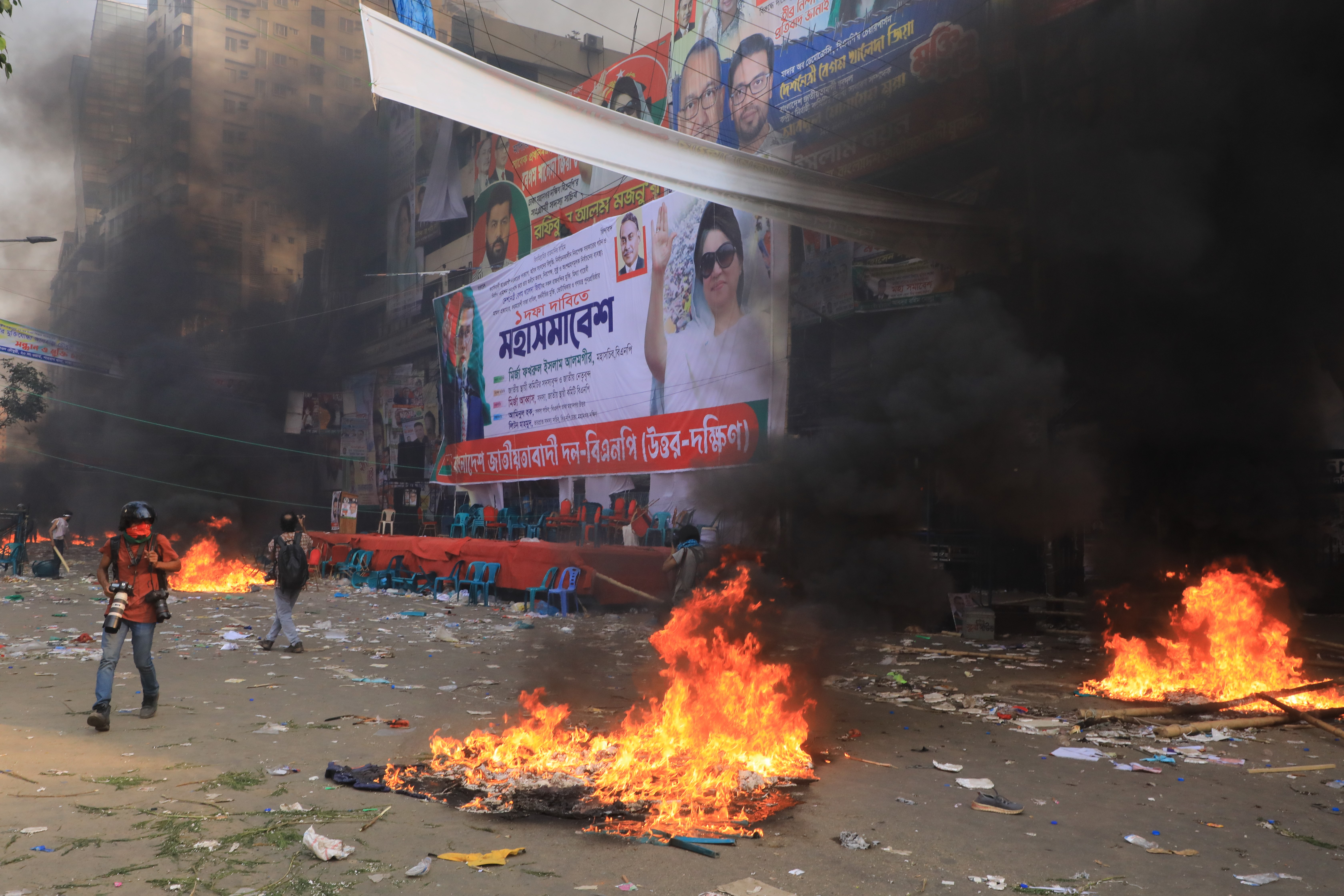
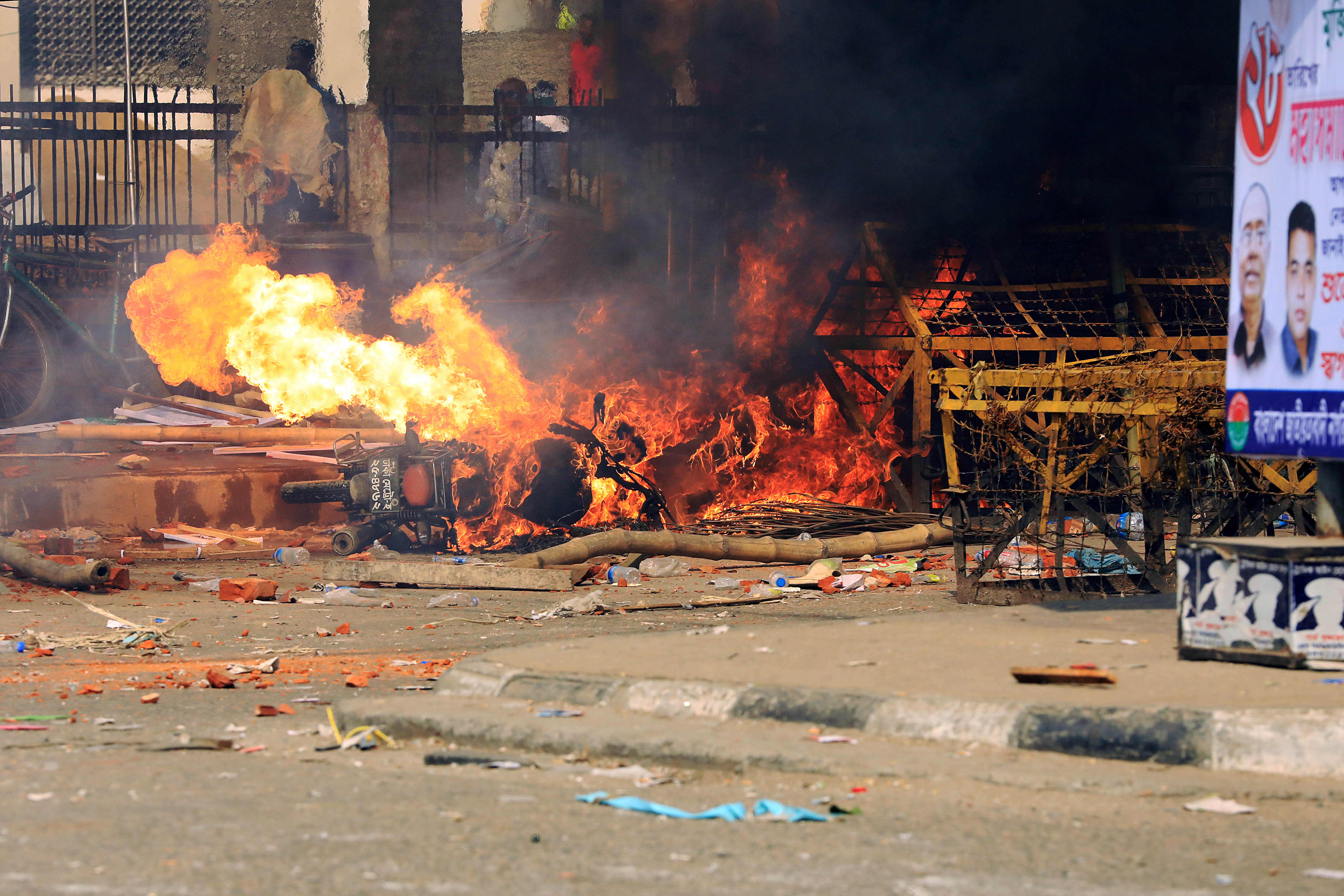
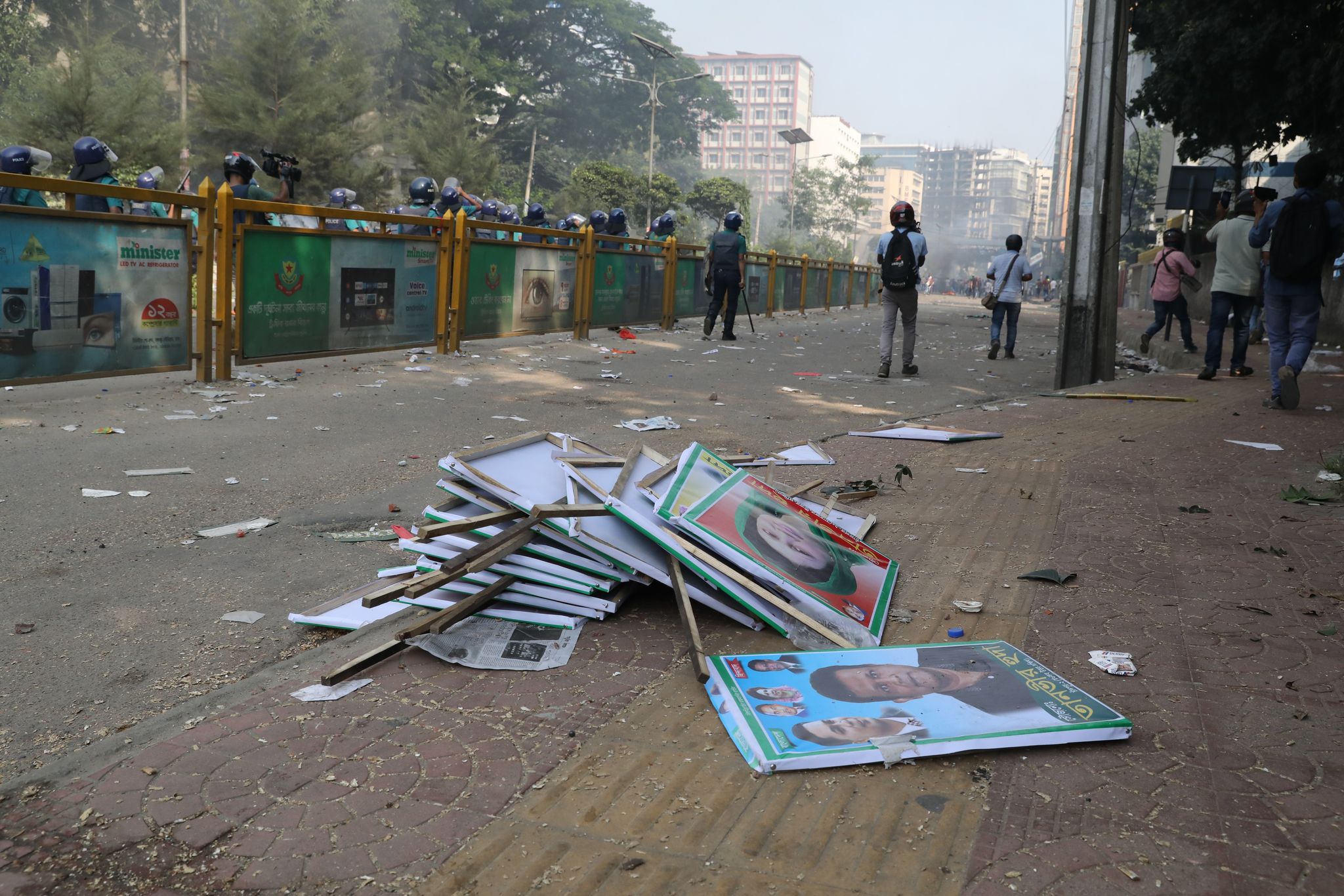
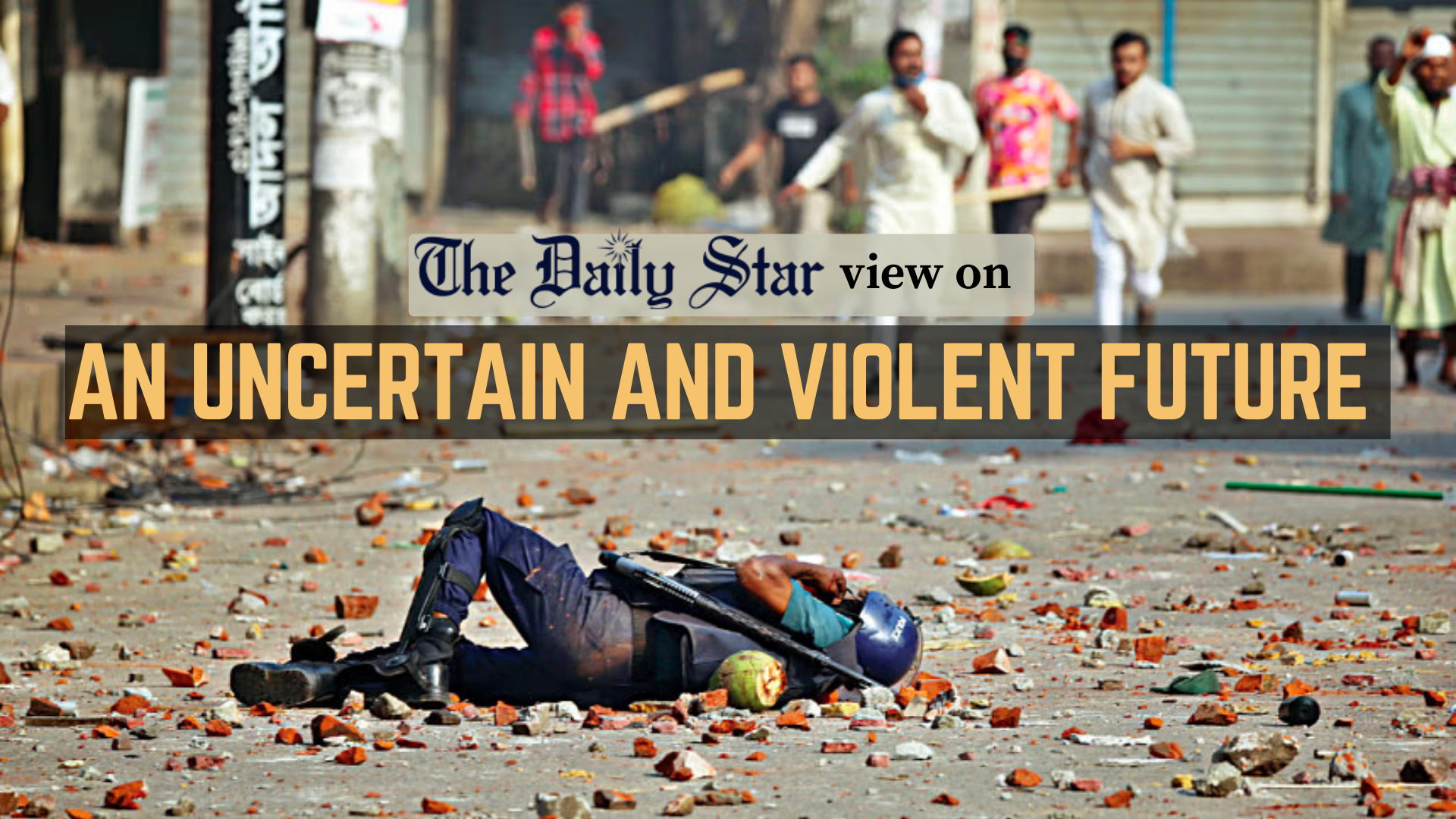
Comments